Morales Says Will Return To Bolivia After Ally's Election Victory
Exiled former president Evo Morales on Monday signaled his intention to return to Bolivia after his leftist heir Luis Arce's sweeping presidential election victory.
Arce, a former economy minister under Morales, claimed victory in Sunday's election after exit polls suggested a crushing triumph over centrist rival Carlos Mesa.
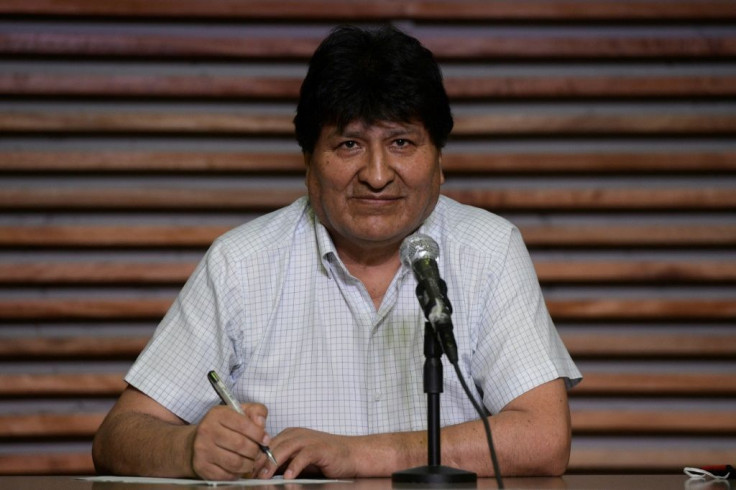
Mesa conceded Monday, saying Arce's 20-point margin of victory was "very forceful and very clear."
"It is up to us, as befits those of us who believe in democracy... to recognize that there has been a winner in this election," said Mesa, a former president.
Exit polls handed over 52 percent of the vote to Arce, with Mesa mustering just 31.5 percent -- upending predictions he would force a second round runoff in November.
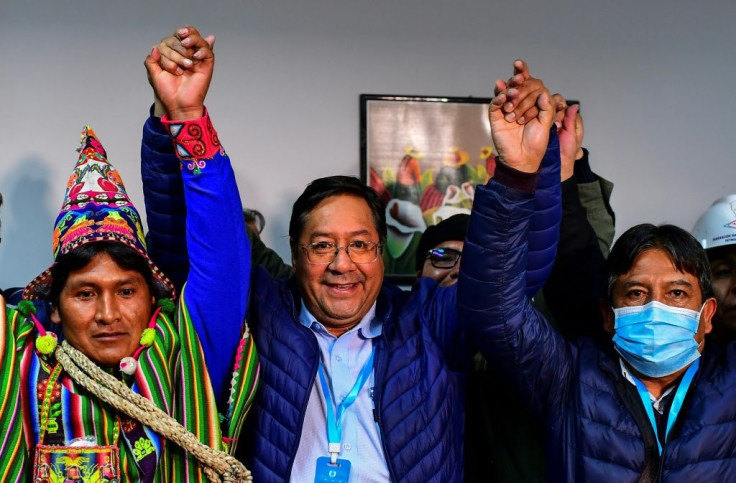
Private polling companies showed Arce winning by a similar margin. Official results are expected to take days.
Despite the coronavirus pandemic, a record 87 percent of Bolivians voted, according to the Supreme Electoral Tribunal, exceeding the average participation of 80 percent.
Arce, 57, said his victory was a "return to democracy" for the divided South American country.
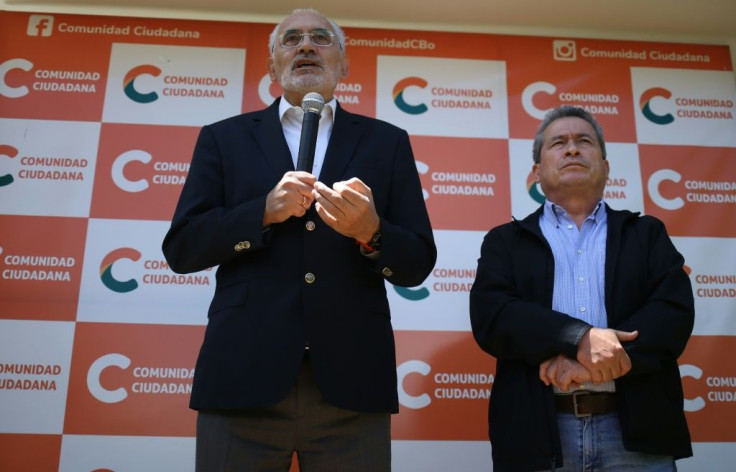
"We have recovered democracy and we will regain stability and social peace," he said.
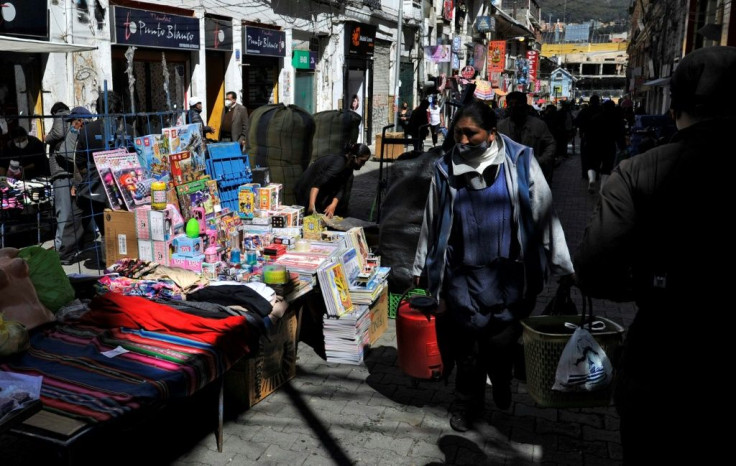
Much attention now focuses on Morales, whose authoritarian 14-year grip on power left a bitter aftertaste for many Bolivians outside his largely indigenous Movement for Socialism (MAS) party.
"Sooner or later we are going to return to Bolivia, that is not in debate," Morales told a press conference in Buenos Aires.
"My great desire is to return to Bolivia and enter my region. It is a matter of time," said Morales, who was ousted amid protests after his victory in 2019 elections was annulled over rigging allegations.
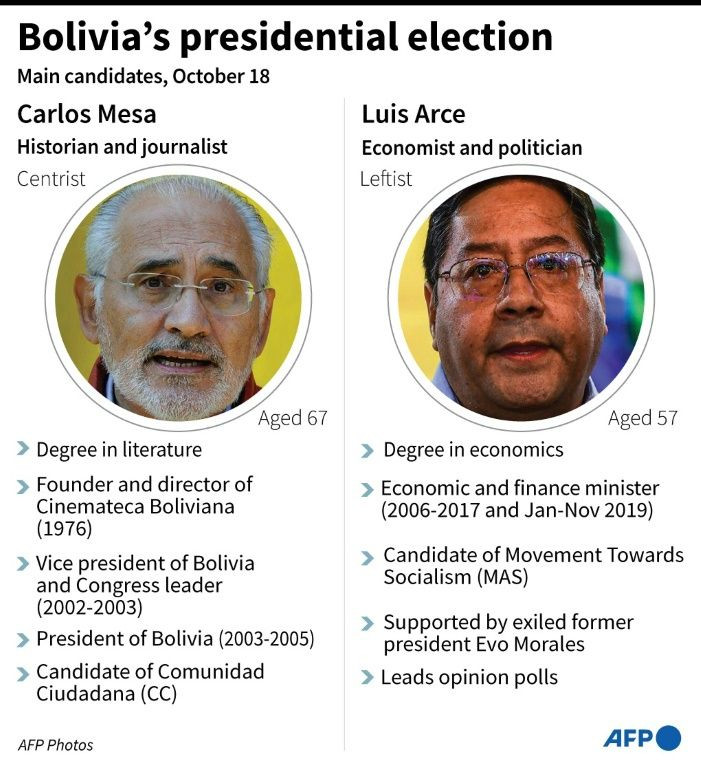
Morales resigned on November 10 after losing the support of the armed forces in the midst of the crisis that left 36 dead and hundreds wounded.
Thwarted in his attempt to secure a fourth term, he initially fled to Mexico, but has since settled in neighboring Argentina after leftist Alberto Fernandez's election victory there.
Morales thanked Fernandez and Mexican President Manuel Andres Lopez Obrador for their support.

He also hailed congratulatory messages from other leftist leaders, Venezuela's Nicolas Maduro and former Uruguayan president Jose Mujica.
Cuba's Foreign Minister Bruno Rodriguez lauded a "people's victory" that would "return justice and wellbeing to the brotherly Bolivian people. Viva Evo!"
Morales said he had even received a call from Argentine Pope Francis on Monday.
"I felt that I was not alone," he said.
The office of UN chief Antonio Guterres lauded "highly participative and peaceful" elections, and encouraged political leaders to work together for national reconciliation.
Arce was credited as the architect of the country's economic miracle under Morales, who became the country's first indigenous president in 2006.
Over the next decade he slashed poverty levels and modernized the country's infrastructure, boosted by demand for Bolivia's natural resources.
The election, twice postponed due to the coronavirus pandemic, was the first in 20 years not to feature Morales, though he remained a looming presence.
Arce's opponents had warned that a MAS victory would herald the return of the ex-president, who faces arrest in Bolivia on terrorism charges after the right-wing interim government accused him of directing anti-government protests from exile.
He is also being investigated for alleged "rape and trafficking" over allegations he had relationships with underage girls.
Morales dismissed the accusations on Monday, saying they were "part of a dirty war" being waged against him.
Arce's victory will bring to an end the year-long interim presidency of conservative Jeanine Anez, who withdrew from the race a month ago over criticism rose of her handling of the coronavirus pandemic that has left more than 8,400 people dead and infected 130,000.
Washington, which saw Anez's government as a key regional ally, said it was awaiting the official results "but President Trump and the United States look forward to working with whomever the Bolivians elect," a State Department spokesman told AFP.
Landlocked Bolivia, one of the poorest countries in the region despite its rich natural resources, is experiencing its worst economic crisis in 40 years with GDP expected to contract by 6.2 percent in 2020.
© Copyright AFP 2024. All rights reserved.





















